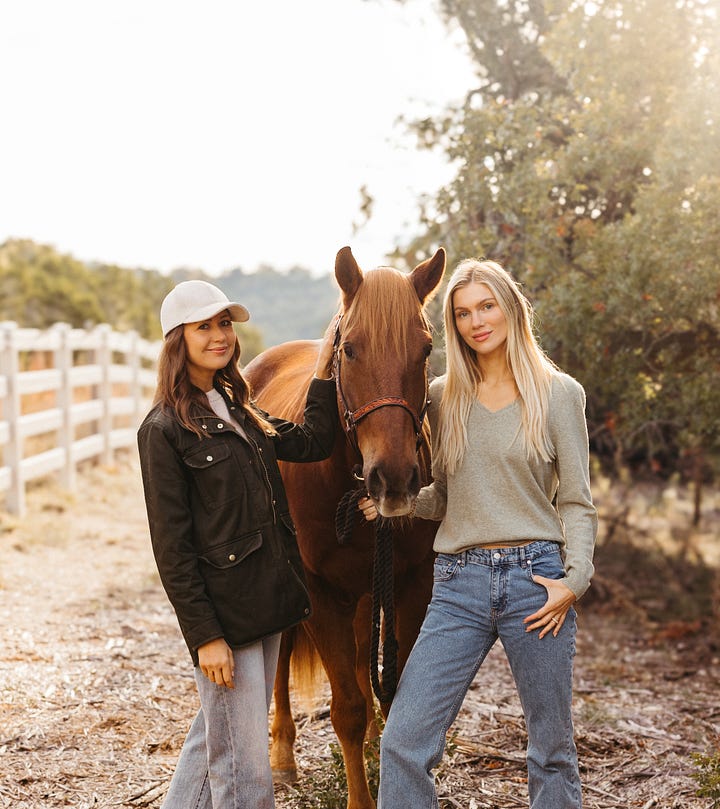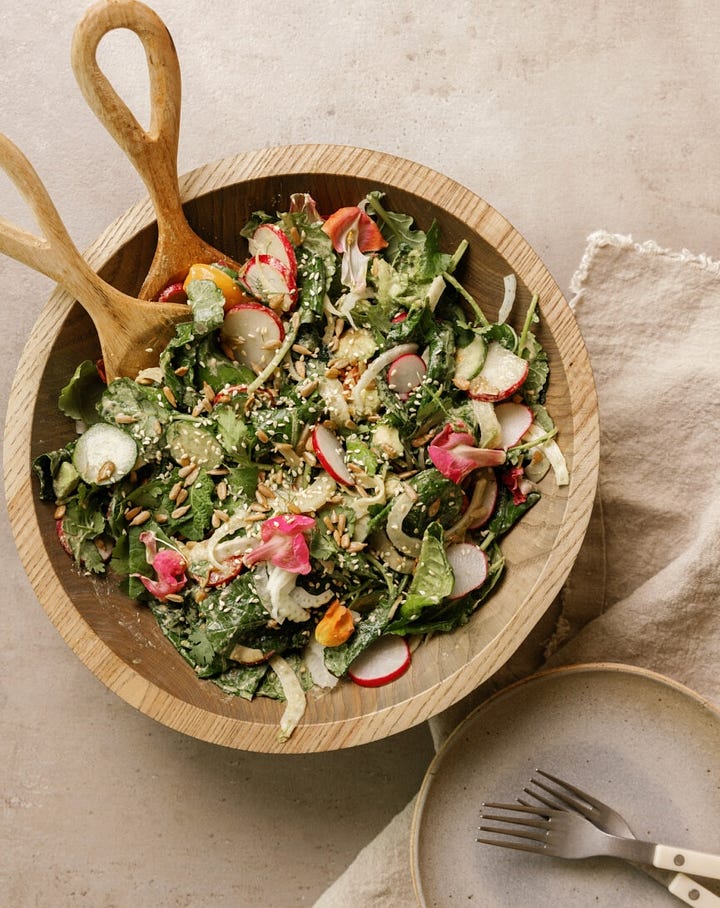The Reset: Movement is Medicine with Mari Llewellyn
4 keys to finally hit your fitness goals this year—plus the my current salad addiction.
Bonjour, my friends. I’m back from Paris and have so much to share from that trip, I’ll be devoting an entire post to it in a couple days. The short version: it was full of incredible food, beautiful art, and an unexpected twist that we’ll get into in Tuesday’s post.
One thing I’ve realized is that, as much as I love to travel, I am really a homebody at heart. There’s no better feeling than coming home after a trip, taking a hot bath, and climbing into my own bed. I find it challenging to stick to any kind of healthy eating and exercise routines when I’m traveling, and to be honest—I prefer to fully indulge in whatever I want to eat, and spend my time exploring a new city instead of in the hotel gym.
That said, I love getting back into my healthy routines once I’m back home, and I truly crave home cooked meals after a few days of travel. Research has shown that it’s consistency that really matters in the long run. It’s way more beneficial to walk 30 minutes a day than to go hard at the gym twice a week.


Before we get into today’s interview, a few things I wanted to share with you:
🥬 Recipe to make: Detox Salad with Cashew Tamari Dressing. This was inspired by a salad I ate in Ibiza last summer. It’s so nourishing and the flavor-texture combo is absolutely addictive.
🎧 Podcast episode I loved: Check In, Don’t Check Out With Gabby Bernstein. This one is all about navigating life’s challenges and befriending the parts of ourselves that we usually try to escape.
🌙 Self-care tip to try: Set a “digital sunset.” Choose a cutoff time (ideally an hour before bedtime) when you stop looking at screens. Use that time for reading, stretching, listening to music, skincare—whatever puts you in a relaxed state for sleep. (Read more about setting screen-time boundaries here.)
For the month of January, I’m interviewing some of my favorite experts across nutrition, fitness, and self-care as part of our 30-Day Wellness Reset. January is about manifesting our dreams and feeling our best, and that includes all aspects of ourselves: physical, mental, and spiritual.
Mari Llewellyn is one of the most inspiring people I know—her podcast, Pursuit of Wellness, tops the wellness charts, and I always learn so much from her conversations with leading health experts. But Mari’s greatest power comes from her personal transformation. After her life hit rock bottom in 2016, she started a fitness journey that ultimately led to an evolution of every aspect of her life (including a 90 pound weight loss.)
I loved my conversation with Mari (read the full interview in the latest issue of Camille Styles EDIT), and just for our Breathing Space readers, she shared her top advice on starting and sticking with your fitness goals this year.
Keep reading with a 7-day free trial
Subscribe to Breathing Space by Camille Styles to keep reading this post and get 7 days of free access to the full post archives.





